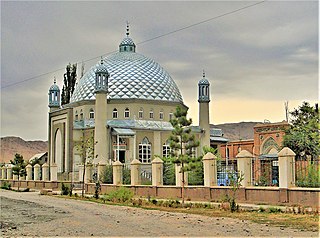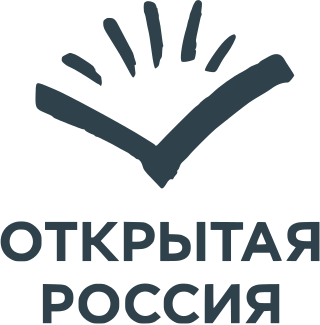
Russia has consistently been criticized by international organizations and independent domestic media outlets for human rights violations. Some of the most commonly cited violations include deaths in custody, the systemic and widespread use of torture by security forces and prison guards, the existence of hazing rituals within the Russian Army —referred to as dedovshchina — as well as prevalent breaches of children's rights, instances of violence and prejudice against ethnic minorities, and the targeted killings of journalists.

Dmytro Oleksandrovych Korchynsky is a Ukrainian writer, poet, militant, and political activist who is the former leader of nationalist Ukrainian National Assembly – Ukrainian People's Self-Defence (UNA-UNSO) organisation.
The mass media in Kazakhstan refers to mass media outlets based in The Republic of Kazakhstan. Media of Kazakhstan are a set of public information transfer agencies in the Republic of Kazakhstan. The Constitution of Kazakhstan guarantees freedom of press, but privately owned and opposition media have been subject of censorship. In 2004 the International Federation of Journalists identified a "growing pattern" of intimidation of the media, and in 2012 several opposition media outlets were ordered to be shut down on charges of promoting "extremism".
The beliefs and practices of Jehovah's Witnesses have engendered controversy throughout their history. Consequently, the denomination has been opposed by local governments, communities, and religious groups. Many Christian denominations consider the interpretations and doctrines of Jehovah's Witnesses heretical, and some professors of religion have classified the denomination as a cult.
The threat of terrorism in Kazakhstan plays an increasingly important role in relations with the United States which in 2006 were at an all-time high. Kazakhstan has taken Uzbekistan's place as the favored partner in Central Asia for both Russia and the United States. Kazakhstan's counter-terrorism efforts resulted in the country's 94th ranking among 130 countries in the 2016 Global Terrorism Index published by the Institute of Economics and Peace. The higher the position on the ranking is, the bigger the impact of terrorism in the country. Kazakhstan's 94th place puts it in a group of countries with the lowest impact of terrorism.

The current government of Russia maintains laws and practices that make it difficult for directors of mass-media outlets to carry out independent policies. These laws and practices also hinder the ability of journalists to access sources of information and to work without outside pressure. Media inside Russia includes television and radio channels, periodicals, and Internet media, which according to the laws of the Russian Federation may be either state or private property.

Christianity in Russia is the most widely professed religion in the country. The largest tradition is the Russian Orthodox Church. According to official sources, there are 170 eparchies of the Russian Orthodox Church, 145 of which are grouped in metropolitanates. There are from 500,000 to one million Old Believers, who represent an older form of Russian Orthodox Christianity, and who separated from the Orthodox Church in the 17th century as a protest against Patriarch Nikon's church reforms.

Recognition of Scientology and the Church of Scientology varies from country to country with respect to state recognition for religious status, charitable status, or tax exempt status. Decisions are contingent upon the legal constructs of each individual country, and results are not uniform worldwide. For example, the absence of a clear definition for 'religion' or 'religious worship' has resulted in unresolved and uncertain status for Scientology in some countries.
The 2021 census noted that Kazakhstan is 69.31% Muslim, 17.19% Christian, 11.25% other religious beliefs and 2.25% no religious belief.

Islam is the main religion in Kyrgyzstan and the constitution guarantees freedom of religion.
Freedom of religion in Tajikistan is provided for in Tajikistan's constitution. The country is secular by law. However, respect for religious freedom has eroded during recent years, creating some areas of concern.
The Constitution provides for freedom of religion and for the principle of separation of church and state; however, the Government continued to restrict these rights in practice. The Government permits the operation of what it considers mainstream religious groups, including approved Muslim groups, Jewish groups, the Russian Orthodox Church, and various other Christian denominations, such as Roman Catholics, Lutherans, and Baptists. Uzbek society generally tolerates Christian churches as long as they do not attempt to win converts among ethnic Uzbeks; the law prohibits or severely restricts activities such as proselytizing, importing and disseminating religious literature, and offering private religious instruction.
The issue of Freedom of religion in Russia is complex with a long and fraught history. As of 2023, Russia is a majority Russian Orthodox society, with significant minority religions within its borders protected by the Constitution of Russia. However, the international community often disputes whether this protection is carried out in practice.

Ukraine was in 96th place out of 180 countries listed in the 2020 World Press Freedom Index, having returned to top 100 of this list for the first time since 2009, but dropped down one spot to 97th place in 2021, being characterized as being in a "difficult situation".

Scientology has been subjected to considerable regulation in Russia including having books prohibited, and branches forced closed.

In Russia, internet censorship is enforced on the basis of several laws and through several mechanisms. Since 2012, Russia maintains a centralized internet blacklist maintained by the Federal Service for Supervision of Communications, Information Technology and Mass Media (Roskomnadzor).

Open Russia is a political organisation founded by the exiled Russian businessman Mikhail Khodorkovsky with the shareholders of his firm, Yukos. Khodorkovsky states that his organisation advocates democracy and human rights. The first initiative took the form of a foundation whose stated purpose was to "build and strengthen civil society in Russia", established in 2001. Khodorkovsky relaunched Open Russia in September 2014 as a nationwide community platform as part of a group of activities called "Open Media".

The Russian undesirable organizations law is a law that was signed by President Vladimir Putin on 23 May 2015 as a follow-up to the 2012 Russian foreign agent law and Dima Yakovlev Law. The law gives prosecutors the power to extrajudicially declare foreign and international organizations "undesirable" in Russia and shut them down. Organizations are subject to heavy fines and lengthy prison sentences if they fail to dissolve when given notice to do so. These punishments also apply to Russians who maintain ties to them. Critics say that the law is unclear in many areas and can be used to silence dissent. Supporters of the bill claim that this law is vital for the preservation of national security.

The U.S. Russia Foundation (USRF) is an American non-profit organization founded in 2008 that aims to strengthen relations between the United States and Russia and to promote the development of the private sector in the Russian Federation. While initially established with its headquarters in Moscow, the organization attracted negative attention from the Russian government and relocated to Washington, D.C. in 2015.
The persecution of Jehovah's Witnesses in Russia refers to Russian government persecution of the Jehovah's Witnesses religious sect. Following the collapse of the Soviet Union in 1991, Jehovah's Witnesses became legal after a long period of being banned, though have still faced widespread government interference into their activities. Jehovah's witnesses were deported en masse to Siberia in 1951 under Stalin via Operation North.









